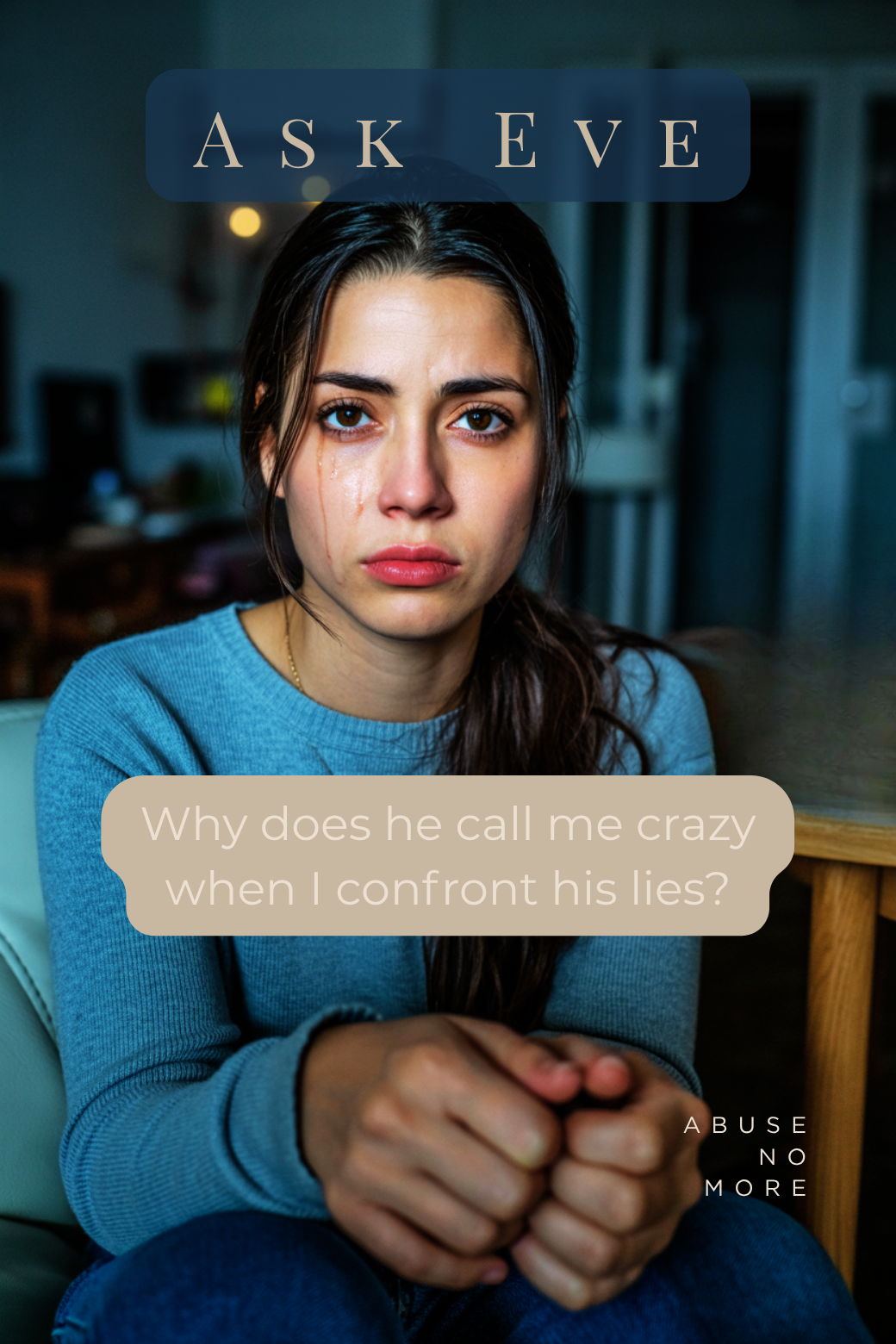Now Reading: “Why does he call me crazy when I confront his lies?”
- 01
“Why does he call me crazy when I confront his lies?”

“Why does he call me crazy when I confront his lies?”
Abuse No MoreAsk Eve Actionable Q&AJune 12, 2025
- Home
- Ask Eve Actionable Q&A
- “Why does he call me crazy when I confront his lies?”
Narcissistic Behavior Exposed:
Classic gaslighting with a twist of projection.
This line — “He calls me crazy when I confront his lies” — might sound like it belongs in a romcom meltdown, but in reality, it’s a massive red flag flapping in the winds of emotional abuse.
What we’re looking at is gaslighting in full force, but with an added weapon: projection.
Let’s break it down:
What’s Really Going On Here?
When you catch someone lying and they don’t defend their actions, but instead attack your sanity, that’s not miscommunication — it’s manipulation.
He knows you caught him. You saw the text, heard the contradiction, noticed the timeline glitch.
But instead of fessing up or explaining, he pivots:
“You’re crazy.”
“You’re imagining things.”
“You’re always so emotional.”
“You have trust issues.”
Sound familiar? That’s gaslighting — the art of denying your reality so deeply and so consistently that you start second-guessing yourself.
But here’s the bonus toxic topping: projection.
He’s projecting his own instability, dishonesty, or guilt onto you. He feels crazy for getting caught — so he throws that word at you. You become the problem. You become the villain in the narrative he needs to survive your truth.
Why This Is So Dangerous
Being called “crazy” — especially during moments when you’re trying to speak up for yourself — can do deep psychological damage over time.
You start wondering:
Am I overreacting?
Did I make this up?
Is this fight my fault?
Maybe I shouldn’t bring things up anymore…
And that’s exactly the point. This tactic is meant to silence you. To make your instincts feel wrong. To train you that your truth isn’t welcome — or even real.
This is how gaslighting turns into self-doubt, which turns into dependency, which eventually leads to emotional paralysis.
IMC Method™ Response
Let’s cut the cord with this tactic — and use the IMC Method™ to get your power back.
Identify
This isn’t “passion,” “mood swings,” or a “communication style.”
This is emotional abuse. Period. Calling someone crazy when they bring up valid concerns is a textbook manipulation tactic.
🚨 Truth Bomb: If someone only sees your emotions as a weapon against them, they were never trying to understand you — only control you.
Minimize
Don’t argue. Arguing gives gaslighting oxygen.
Instead:
Keep your responses factual and brief.
Use phrases like “That’s not how I experienced it” or “I remember it differently.”
Document things for your own peace of mind. Not to prove to them — but to prove to yourself that you’re not making things up.
✍️ Journal Prompt: “What exactly happened, and how did I feel in that moment — before I was told I was ‘crazy’?”
Control
This is where you take your power back. Not through convincing — but through clarity and boundary.
Examples:
“I won’t continue this conversation if you disrespect me.”
“It’s not okay to call me names, especially when I’m trying to communicate.”
“If this keeps happening, I’ll need space.”
You don’t need their agreement to set a boundary. Boundaries are yours. They don’t require permission.
💬 Remember:
If you’ve been called “crazy” during moments when you were trying to stand up for yourself — hear me now: you are not crazy. You are perceptive. You are waking up. And someone calling you “crazy” doesn’t make it true — it makes it convenient for them.
The moment you stop defending yourself to a liar is the moment you start defending your peace.
















